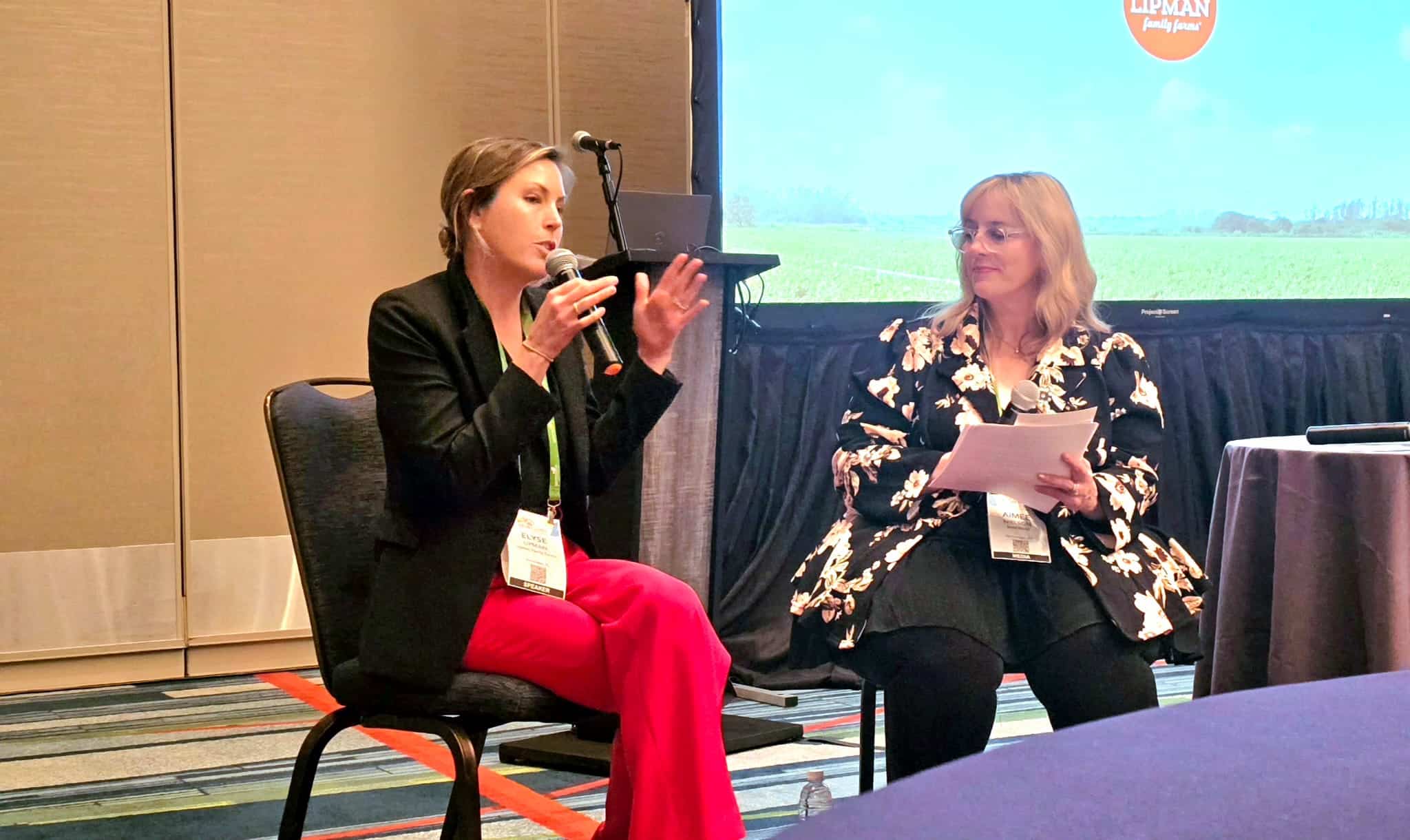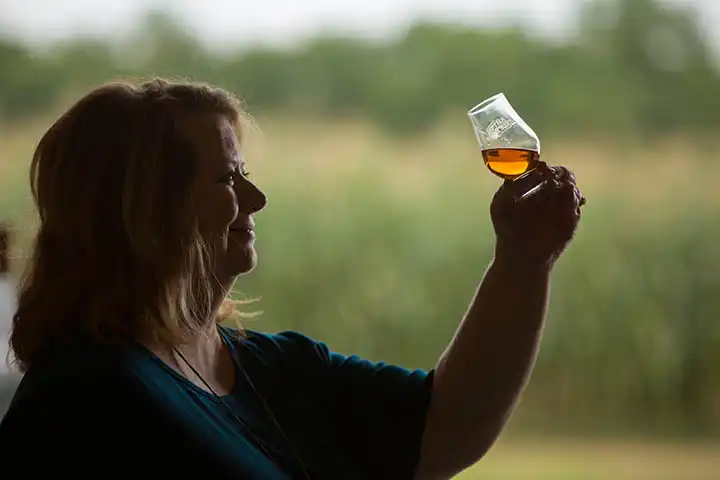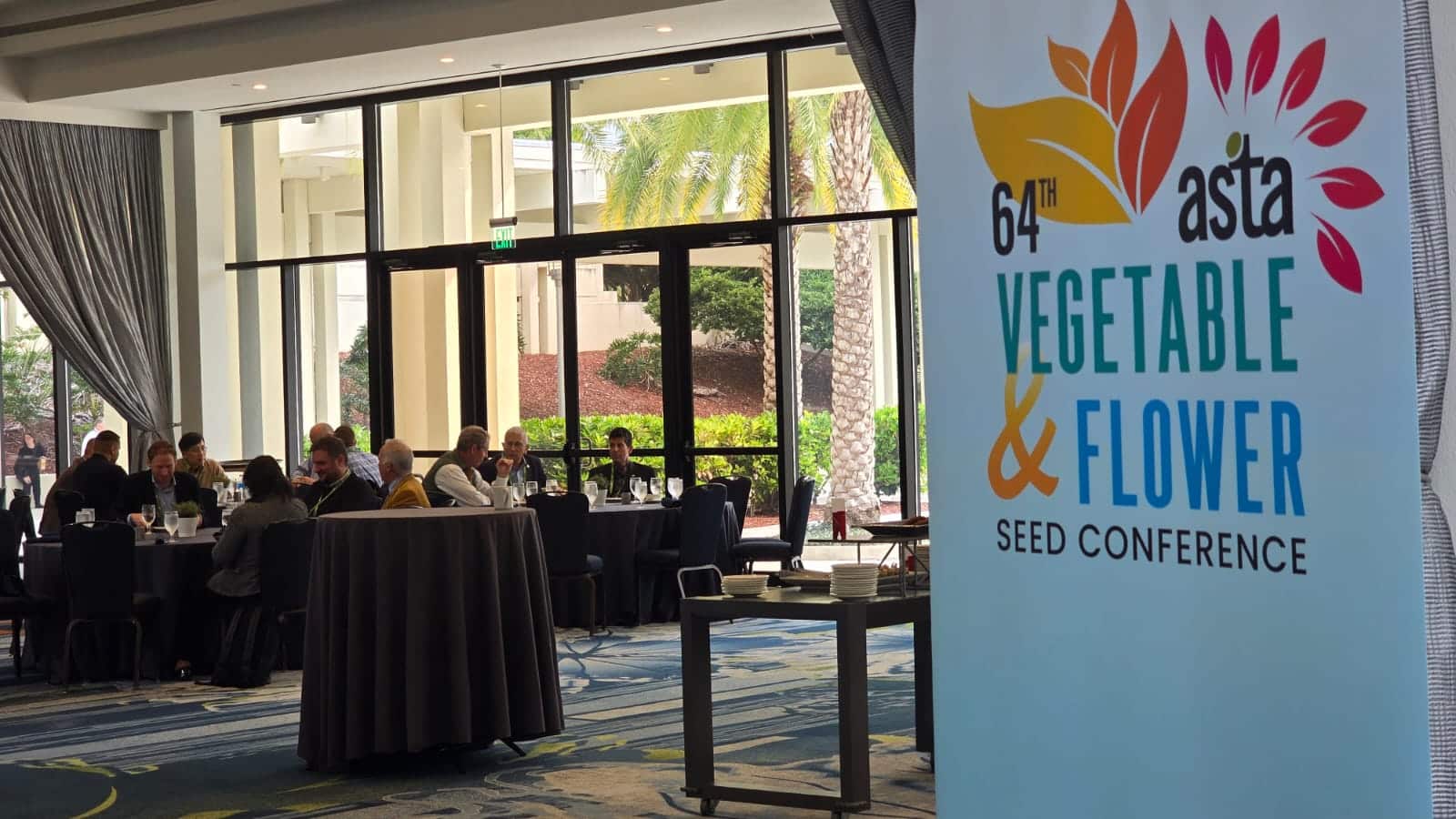Elyse Lipman knows what it means to walk a tightrope between legacy and progress. As CEO of Lipman Family Farms, North America’s largest open-field tomato grower, she stands at the intersection of tradition and innovation — where history meets the future and tough decisions define success.
During the Women in Seed: Perspectives for Everyone session at ASTA’s Vegetable & Flower Seed Conference, Lipman delivered a candid message about leadership, change and the industry’s responsibility to move forward with intention. She didn’t just talk about what has worked. She focused on what’s next.
“I’m constantly facing this healthy tension between maintaining and honoring the tradition of the past and continuing to grow and think ahead,” she said.
Her company, built on the hard work of multiple generations, has evolved far beyond its origins. It started as a simple tomato farming operation. Today, Lipman Family Farms operates in four countries with 33 locations, handling everything from seed breeding to high-tech greenhouses to fresh-cut vegetable processing. The company feeds millions of families every year. But that transformation didn’t happen by accident. It happened because of a willingness to confront challenges head-on.
Turning Hardships Into Opportunity
Lipman recalled one of the company’s most pivotal decisions — the moment they chose to develop their own seed genetics. It was the early 2000s, and the tomato industry was changing fast. The number of Florida tomato growers was dwindling, consolidating into fewer and fewer hands. The Lipman team saw a problem — there weren’t enough seed options to meet their growing needs. But instead of accepting the limitations, they took a different approach.
“When something was really hard, we saw that as an opportunity, not something to shy away from,” she said.
The idea was simple but radical. Instead of relying on outside seed companies, why not breed their own? Their top sales representative floated the idea, not knowing just how transformative it would become.
“To the family’s credit, we knew we were certainly not the experts,” she said. “So the answer to exploring this was to go out and find the best expert that we could.”
She relied on the expertise of Mark Barrow, a respected seed breeder from Syngenta. With his leadership, Lipman Family Farms built a seed development program from the ground up.
“He put his faith in the … Lipman family,” she said. “We had nothing. We had to buy and build greenhouses. We had to grow the lab. We had to grow the team.”
Now, after two decades of R&D, Lipman Family Farms has developed proprietary tomato varieties optimized for flavor, shelf life and climate resilience. Their investment in breeding has not only strengthened their supply chain but also given them a critical advantage in a rapidly changing marketplace.
Breaking Barriers in Leadership
Lipman talked about how her company has evolved and also addressed the realities of leading as a woman in agriculture — a sector that has historically been dominated by men.
“I don’t think it is a man’s world,” she said in response to a question from the audience. “The industry is evolving on all fronts.”
But that doesn’t mean the path to leadership is always easy. When Lipman became CEO, she felt the weight of expectations, not just from the industry but from within her own company. She admitted that imposter syndrome hit her hard when the board made the announcement.
“I got a lot of people who said congratulations,” she said. “And then I got a lot of people who were like, ‘Wait—why you?’”
That doubt, she said, wasn’t easy to shake. But she found confidence by leaning on those she trusted most.
“I go home to my family, and as long as they’re good, I’m good,” she said.
Even before she officially stepped into the role, Lipman knew that her leadership style would be different from her predecessors. She recalled a key conversation with her executive team, where she asked them directly what concerned them most about her as CEO.
The company’s chief operating officer, Toby Purse, didn’t hesitate.
“You are very different from me,” he told her. “You think very differently from us. My biggest concern is that you try and conform to us rather than change us.”
That moment solidified Lipman’s approach. She wasn’t going to lead by imitation. She was going to lead by bringing something new.
“Every one of us deserves a seat at the table,” she said. “Not just because we work hard or because we’re team players, but because we bring something unique.”
Technology and the Future of Ag
Lipman said the agriculture industry is at a turning point — one that demands adaptation and a willingness to embrace new technology.
“Every company today is a technology company,” she said. “Every company is a media company. Every company is an information company.”
In her view, staying competitive means integrating AI, CRISPR, automation and data analytics into every aspect of the business. The tools exist, but she believes not every company is using them effectively.
“I can’t think of an area of our business that is not going to be impacted by technology,” she said.
The challenge isn’t just keeping up. It’s making sure that companies don’t resist change out of fear of disrupting tradition, she added.
“What got us here won’t necessarily get us there,” she said.
Talent, Mentorship and the Next Generation
One of Lipman’s biggest concerns for the future is talent recruitment. Agriculture, she argued, isn’t doing enough to attract young professionals who are looking for meaningful, technology-driven careers.
“Our industry offers so many opportunities to engage in exciting ways, no matter your skill set,” she said. “But we need to do a better job of showing that to the next generation.”
To combat that challenge, Lipman Family Farms has developed internship and management training programs designed to expose young professionals to the wide range of careers within agriculture.
“We bring interns in, and they don’t just get put in one spot,” she said. “They get exposure across all facets of the company, from the executive team to the field. And I think that’s the right way to do it.”
Lipman urged leaders to take responsibility for mentoring and developing talent. Finding the right people, she said, requires looking beyond experience and instead focusing on adaptability.
“I do try and get into those questions that can really, really infuriate people about what you do when you don’t know the answer,” she said. “And what I want to hear is that they would pull in teams, that they’d go out and find the best people.”
Leadership, she said, isn’t about having all the answers. It’s about knowing how to find them.
Lipman closed with a challenge for the industry. The future of agriculture isn’t something to wait for. It’s something to build.
“The future is for us to figure out,” she said. “It’s for us to shape.”
For Lipman, that means making bold decisions, embracing new ideas and breaking away from outdated molds. It means leading with confidence, even when the path isn’t clear.
“We all need to do more with less,” she said. “We all need to feed more people. And none of us can do that alone.”
That future, she argued, belongs to those willing to push forward. The ones who aren’t afraid to challenge the status quo. The ones who don’t just adapt but drive the change themselves.













